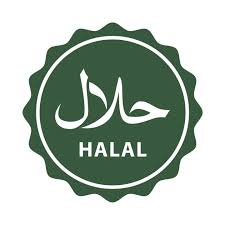What Does It Mean When Meat Is Labeled HALAL?
- Eman

- Mar 10, 2025
- 3 min read
What Does It Mean When Meat Is Labeled Halal?
Hi, I’m Emilia, the writer behind this post, and today I want to share something I recently learned from Eman about what it truly means when meat is labeled halal.
Before Eman explained it to me, I had a very basic understanding of halal meat. I assumed it was just about religious dietary restrictions, but I’ve since realized it’s much more than that—it’s also about ethics, cleanliness, and, in my opinion, better taste.
What Makes Meat Halal?
The word halal is Arabic for “permissible,” meaning that the food meets Islamic dietary laws. For meat to be considered halal, it must follow specific guidelines:
Animal Welfare Matters – The animal must be healthy and treated humanely before slaughter. Islam places a strong emphasis on kindness to animals, so halal slaughtering requires minimal suffering.
A Prayer is Recited – The person performing the slaughter must be a practicing Muslim and must say Bismillah (in the name of God) before making the cut. This acknowledges respect for the life being taken.
Proper Draining of Blood – The blood is fully drained from the animal, which many believe results in cleaner meat with less risk of bacteria.
No Forbidden Additives – The meat cannot be contaminated with anything that is not halal, such as pork products or alcohol-based ingredients.
Another important aspect of halal slaughter is that other animals cannot be present or watching when one animal is being slaughtered. This rule is based on the belief that animals experience fear and distress when witnessing the death of another animal. Ensuring that each animal is slaughtered separately and without others nearby is considered more ethical and aligns with the Islamic principle of treating animals with kindness and respect.
In my opinion, this makes a lot of sense. If an animal is in distress, I believe that bad energy remains in its body, and when you eat that meat, you’re also consuming that negative energy. This is another reason why I personally prefer halal meat—it feels cleaner and better, not just physically but even on an energetic level.

Why I Prefer Halal Chicken
Even though I’m not Muslim myself, I’ve found that I actually prefer halal chicken over regular chicken. Eman introduced me to it, and once I started paying attention, I noticed a real difference. The taste is fresher, the texture is cleaner, and it doesn’t have that weird aftertaste or gamey smell that some non-halal chicken has.
There’s also something reassuring about knowing that the meat I’m eating was handled with care. Whether you follow halal for religious reasons or are just looking for high-quality meat, it’s worth giving it a try. I know I won’t go back to regular chicken if I have a choice!
Other Halal Rules You May Not Know About
In addition to the rule about animals not being present, there are other important guidelines that must be followed for meat to be considered halal:
Sharp Knife Requirement – The knife used for slaughter must be extremely sharp to ensure a quick, clean cut with minimal pain. A dull knife could cause unnecessary suffering, which is not allowed in halal slaughter.
No Stunning (In Most Cases) – In many halal practices, animals cannot be stunned before slaughter because it might cause death before the proper religious procedure is performed. However, some countries allow reversible stunning if the animal is still alive at the time of slaughter.
Organs Must Be Intact – The animal’s organs should be in good condition, and if any major organs (like the heart or liver) are diseased, the meat may not be considered halal.
Processing & Storage Must Be Halal – Once the meat is slaughtered, it cannot come into contact with non-halal foods (like pork or alcohol). It must be processed, stored, and transported separately from non-halal products.
Slaughter Must Be Done by a Muslim – The person performing the slaughter must be a practicing Muslim who is of sound mind and understands the religious significance of the process.
For me, the extra care taken in the halal process makes the food taste better, and it aligns with my values of kindness and mindfulness. It's fascinating to learn about, and I'm grateful for Eman showing me the importance of halal in her culture and religion.
Thank you for reading our blog!
-Emilia & Eman










Comments